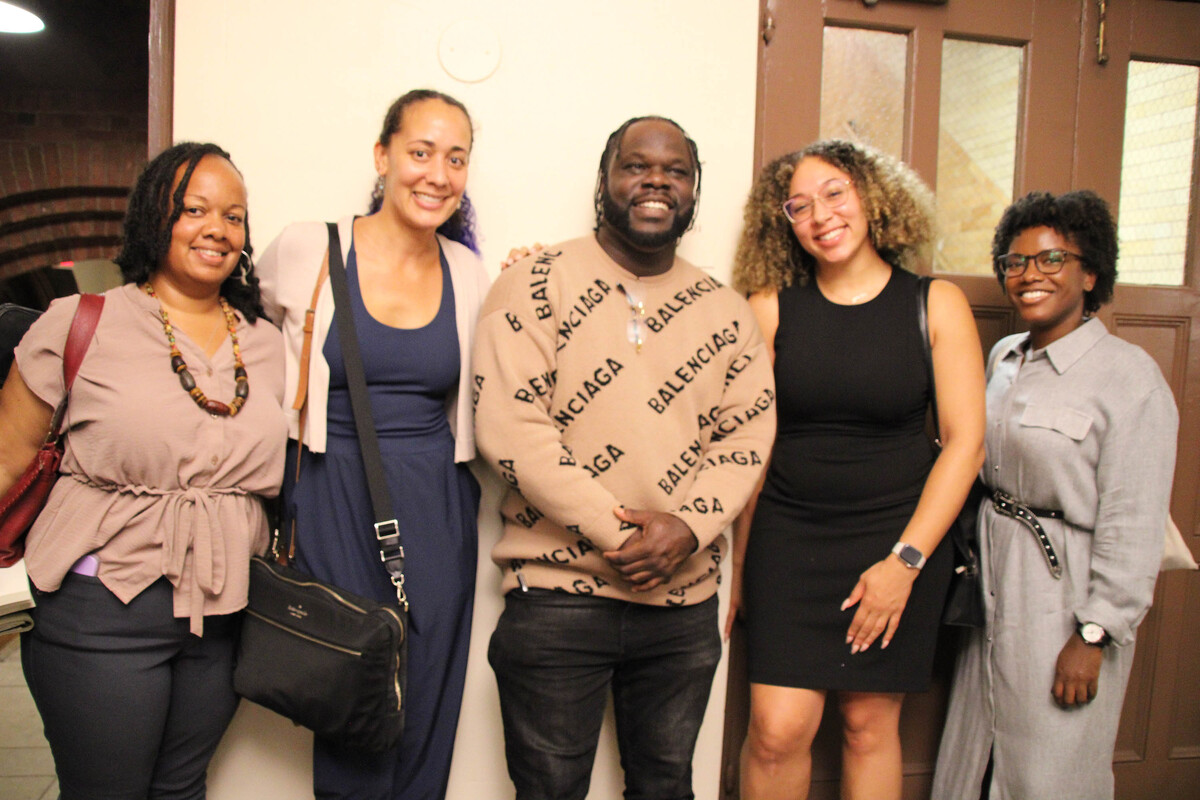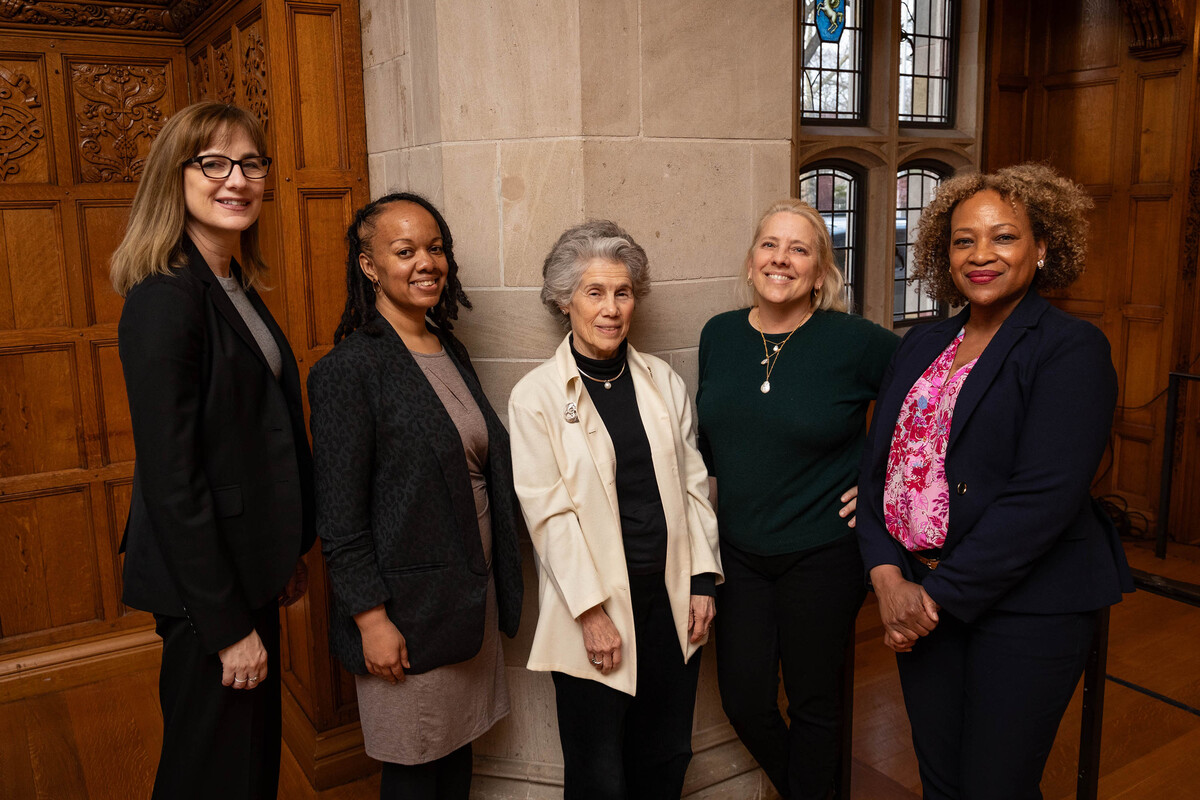Jennifer Taylor ’10 Looks Back on Time at Liman Center


When Jennifer Taylor ’10 became Director4 of the Arthur Liman Center for Public Interest Law5 in May 2022, one of her priorities was connecting and building relationships with the Liman network of alumni and fellows6 that spans more than a quarter century. Having succeeded in doing so, she said her first colloquium, the Liman Center’s 25th, “felt like a reunion.”
Taylor, who has been commuting from Alabama during her time as Director, announced a few months ago that she would be leaving in June to return to work near home. She now looks forward to staying in touch with the Liman Center and its more than 190 Fellows.
“Jennifer’s leadership during the past two years has been exceptional, as she is unflappable and wise,” said Founding Director Judith Resnik, Arthur Liman Professor of Law. “Jennifer has helped to launch a new website, Seeing Solitary7. She shaped the Colloquia — 2023’s Budgeting for Justice: Fiscal Policy and Monetary Sanctions8 and 2024’s Incarceration and Public Health9. She co-taught classes, coordinated the Quinnipiac-Yale Dispute Resolution Workshops, and recruited new Liman Fellows.”
Here, Taylor discusses some of the highlights of her time at the Liman Center.
What impact do you hope you’ve had on the Liman Center and its Fellows as Director?
I came into this role hoping to return to YLS as a person who understood the challenges faced by law students passionate about building a career in public interest law, and as a lawyer who has worked in that field and can share advice and insight drawn from that experience. Over the past two years, I have put that knowledge and understanding to work, while co-teaching the Liman workshop, advising students on research projects and papers, and planning programming and events like lunchtime panels and the annual Liman Colloquium. Connecting with fellowship applicants and current and past Liman Fellows has also been an incredible opportunity to witness and support law students embarking on the path from graduate to entry-level lawyer to charting out a multi-year career path. It’s been a privilege to be a part of this community again, and a part of those journeys, and I’m thankful for all I’ve been able to learn during the process, too.

What are your fondest memories of your time at the Center?
First, it has been a real pleasure to work with the Liman Center team and the many support staff who help run the various systems we depend on from day to day. I could not have accomplished a fraction of the work on my plate without their patience and guidance, and I’m grateful to have been so generously supported. Special thanks to Judith Resnik, Serena Crawford, Elizabeth Keane, Marilyn Wilkes, and Nicole Gehring for being on the Liman team during my tenure.
I also greatly enjoyed the opportunity to plan programs that related to my background and connections. It was a complete joy to be able to help bring people I know to YLS to speak about their work and experiences — from Bryan Stevenson’s appearance as opening speaker for the 2023 Liman Colloquium8, to Ian Manuel’s participation as a panelist and poet/author10 discussing his experiences in solitary confinement while imprisoned in Florida for more than 20 years. A special pleasure was the talk about the June 2023 voting rights decision in Milligan v. Alabama11. It featured lead plaintiff Evan Milligan (my husband) and Deuel Ross of the NAACP Legal Defense Fund, one of his attorneys. In each of those events and others, I’ve had the chance to collaborate with other YLS centers, student groups, faculty, and staff. Each time, that’s been an opportunity to learn how this law school can be a dynamic environment for facilitating discussion on key issues, as well as a hub for organizing research and action to work with local groups and members of the Liman Fellow network both near and far. The goal is to have an impact on those issues in a way that reaches beyond the classroom. Helping to make those connections was always one of the most rewarding parts of this job.

What do you look forward to in your next chapter?
I’m looking forward to re-rooting my work in Alabama, devoting some time to a few independent projects I have been struggling to prioritize for the past few years, and enjoying the summer with my family. Flexibility and freedom are the keywords right now, but longer-term plans will form in good time. At the same time, I will always be a YLS alum, and I look forward to staying connected to the Liman Center and its ongoing projects and events.

What hopes do you have for the Liman Center’s future?
I am excited to see the Liman Center’s future under Kate Braner’s leadership12. She brings such a wealth of experience and a passion for working with law students and fellows. I know she will infuse many of the center’s existing projects with energetic leadership, and over time, develop new projects drawn from her own expertise. I’m thrilled that she will be continuing the center’s projects on access for incarcerated voters and the continuing effort to update and re-issue the Connecticut Prisoners’ Rights Manual13. I encourage interested students to contact her for more information on how to get involved!


